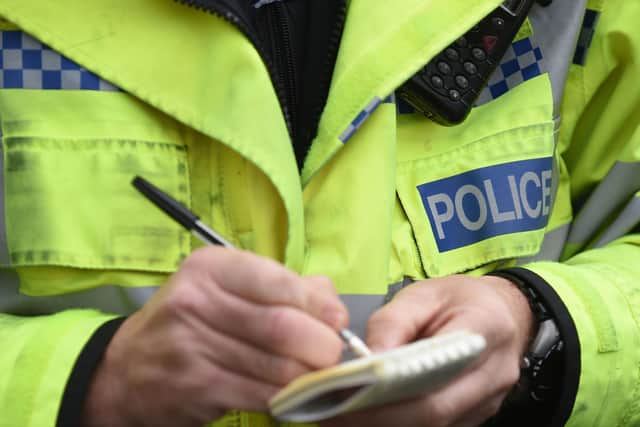Nearly six in 10 Covid fines go unpaid in Lancashire - with a quarter SCRAPPED after being challenged
and live on Freeview channel 276
Data obtained under freedom of information laws indicated more than three in five coronavirus fines have gone unpaid in some parts of the country.
Thousands of fixed penalty notices (FPNs) have been rescinded by police forces after being issued.
Advertisement
Hide AdAdvertisement
Hide AdIn Lancashire, 477 out of 828 fines went unpaid, while 204 were later scrapped.


Lawyers and campaigners said the figures illustrated how chaotic the laws governing Covid-19 restrictions had become, calling for a review of the process to make sure powers were being used fairly.
Lawyer Raj Chada, head of the criminal defence department at Hodge Jones & Allen, said: “The mess of Covid regulations know no bounds.
“Criminal law should be clear, certain and widely adhered to – otherwise it becomes arbitrary and unfair.
Advertisement
Hide AdAdvertisement
Hide Ad“These figures show that and worse – the situation is a farce.”
Nine forces saw 60 per cent of more of the penalties go unpaid within 28 days between March 27 and September 21.
Lancashire's figure was 57.61 per cent.
It was previously disclosed that about half of fines nationally went unpaid in the 28-day period, although chairman of the National Police Chiefs’ Council (NPCC) Martin Hewitt said this proportion is similar to other fixed-penalty notices.
It comes as police forces were told to resume handing out £10,000 so-called super-fines less than a week after a decision to suspend them.
Advertisement
Hide AdAdvertisement
Hide AdPeople who receive a coronavirus fine can appeal in the first instance to the police force that handed out the penalty, to try to get it withdrawn.
Kirsty Brimelow QC, a human rights barrister at Doughty Street Chambers, said it was “predictable” people would stop paying fines, with some not being able to afford to pay them, or not feeling they did break any laws, while others “may just be resentful that those in power acted as if the laws did not apply to them”.
And Madeleine Stone, legal and policy officer at campaign group Big Brother Watch, said the figures “make it plain that there are serious failings in the way police have issued fines during the pandemic” and described unpaid lockdown fines as a “prosecution crisis waiting to happen”, adding: “The laws governing lockdowns are constantly changing, complex and poorly drafted.”
A Home Office spokesman said: “The rules are being enforced correctly in the vast majority of cases and those who refuse to pay FPNs may face court action and a possible criminal record.
Advertisement
Hide AdAdvertisement
Hide Ad“Throughout the pandemic, officers have policed by consent – engaging with the public and encouraging compliance, but taking action where necessary.
“We are determined to rigorously enforce the law and are strengthening enforcement by the police and local authorities, with £60million of extra funding made available for this.”
Owen Weatherill, the officer leading the policing response to the pandemic, told MPs last month that it had taken forces time to understand the changing lockdown rules, and said that he had pushed the Government to keep messaging for the public simple.
A spokesman for the NPCC said: “We have enforced the law as set by the Government and Parliament. It is only right that fines are then processed in accordance with the law and we therefore encourage people not intending to contest a fine to pay it.
Advertisement
Hide AdAdvertisement
Hide Ad“If any individuals are concerned about why they have received a fine, they can raise it with the force which issued the FPN within the 28-day payment period.
“Officers will have recorded their justifications for issuing an FPN, along with providing evidence to support any breaches of the regulations.
“Once a fine is contested or unpaid the case will proceed to court. Police forces review all of these cases to further ensure only those cases that meet the evidential and public interest test are heard in court.”